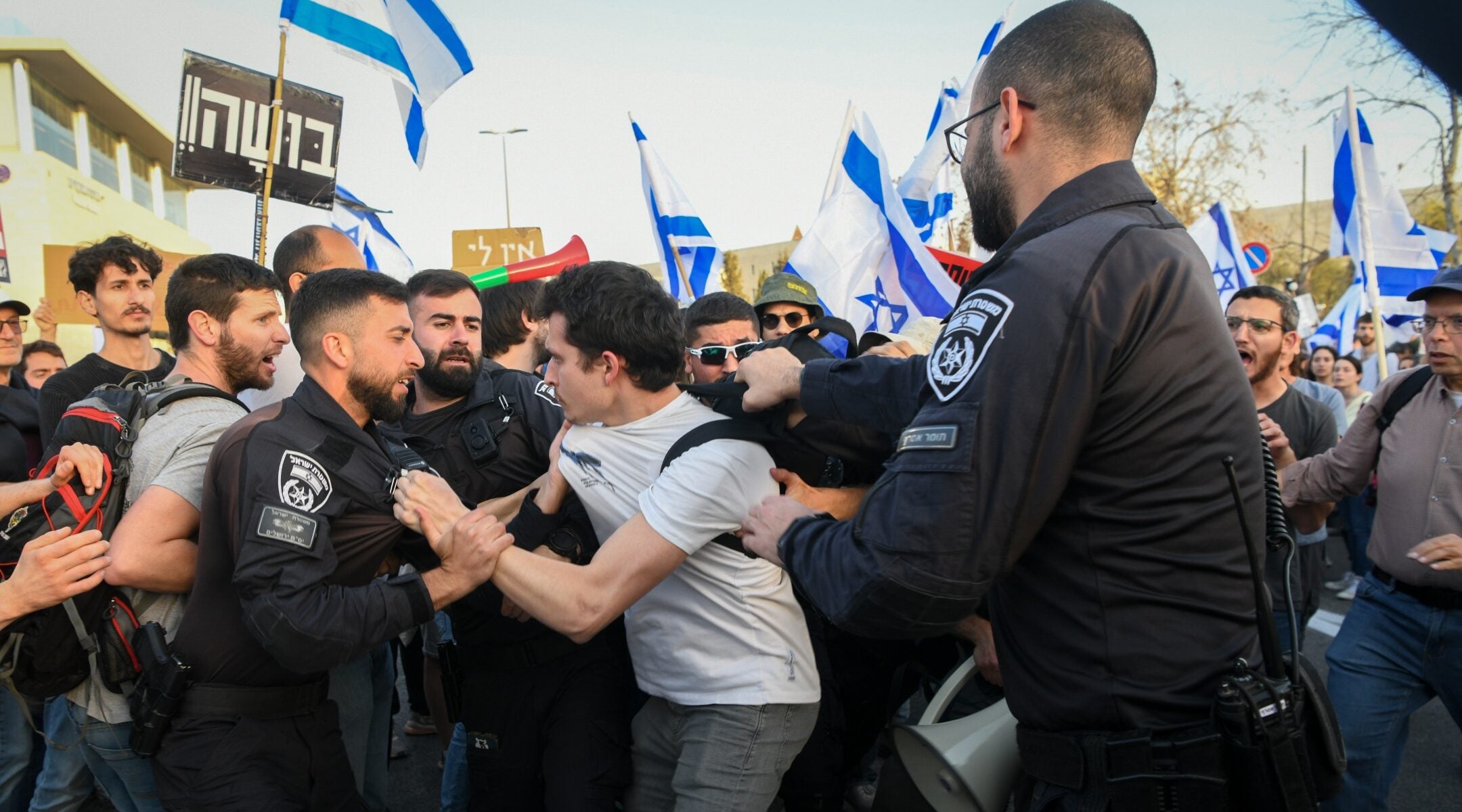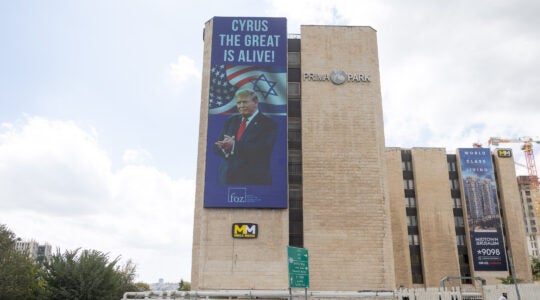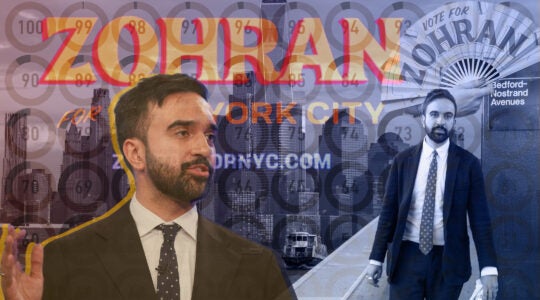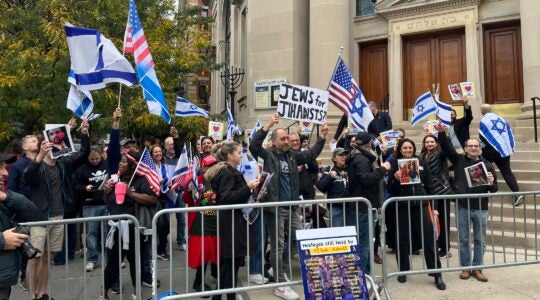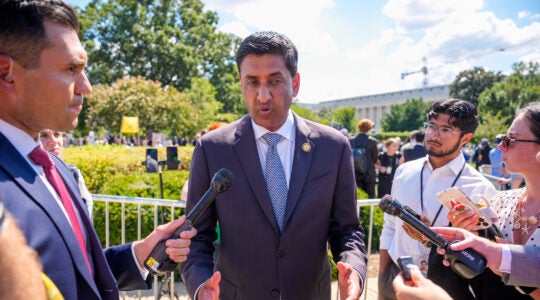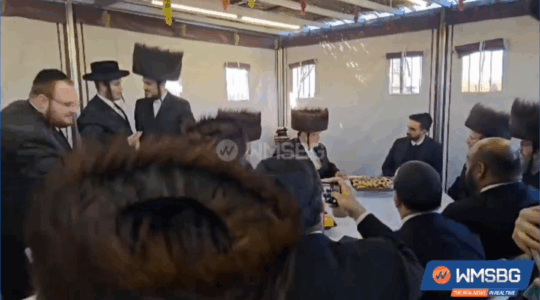(JTA) — In a defiant televised address, Israeli Prime Minister Benjamin Netanyahu compared protesters of his government’s proposed judicial overhaul to the West Bank settlers who recently rioted in a Palestinian village, burning houses and cars.
Netanyahu, speaking for about seven minutes shortly after 8 p.m., warned that the protesters were crossing “red lines” and would themselves face retaliation, without elaborating on what shape it might take.
His remarks came after what protesters billed as a “day of disruption,” in which demonstrations blocked roads across the country, including a central highway in Tel Aviv. Police fired stun grenades, water cannons and tear gas at protesters, and at least 11 were hospitalized. Dozens of protesters were arrested.
Later in the day, including during Netanyahu’s speech, a crowd of protesters surrounded a hair salon in an upper-class neighborhood where Sara Netanyahu, the prime minister’s wife, was getting a haircut. The crowd kept the salon surrounded for hours, until a convoy of Israeli border police came to evacuate her from the building.
Netanyahu alluded to the crowd surrounding his wife in his speech and likened the protesters to the settlers who rioted in the Palestinian village of Huwara after a Palestinian killed two Israelis there. The settler rioters injured dozens of Palestinians, and a Palestinian man was killed amid the riots in another village.
“In Huwara, in the face of the horrific murder of two wonderful brothers, I said to the lawbreakers, we will not tolerate a situation in which ‘every man does that which is right in his own eyes,'” Netanyahu said, quoting a biblical passage. “And I say it again to the lawbreakers who crossed red lines in Tel Aviv today, we will not tolerate a situation in which ‘every man does that which is right in his own eyes.'”
Netanyahu added, “We cannot accept violence, we cannot accept attacks on police officers, we cannot accept blocking roads, we cannot accept threats toward public figures and their family members, something that is happening at this very moment in the heart of Tel Aviv.”
Later in the speech, he added, “If you erase the red lines on one side, they will be erased on the other, and the path to chaos is very quick,” he said.
Benny Gantz, one of the opposition leaders, called for talks under the aegis of President Isaac Herzog, who has offered to mediate, as did four influential Knesset members. Netanyahu did not mention those appeals in his speech.
Leaders of Israel’s parliamentary opposition came out in support of the protests — and some also called on protesters to let Sara Netanyahu leave the salon. Labor Party leader Meirav Michaeli, a Netanyahu opponent, also noted that police arrested more protesters in Tel Aviv than rioters in Huwara.
“Huwara was a terrorists’ pogrom,” Opposition Leader Yair Lapid, the head of the Yesh Atid Party, tweeted after Netanyahu’s speech. “How can Netanyahu compare that to members of [Israeli commando unit] Sayeret Matkal, to Apache pilots, to army reservists, to doctors and students, to people that came out today to the street? These are the best people in the country.”
For weeks, protesters have been turning out in the streets in the hundreds of thousands in a bid to stop the advance of legislation that would gut the courts of their independence. Pieces of that legislation were approved in a committee vote on Wednesday, moving one step closer to passage. The proposed overhaul would enable a majority of Israel’s parliament, the Knesset, to override Supreme Court decisions, and would give the government full control over appointments to the court.
Most of the protests are coordinated with the police, and there have been minimal arrests until Wednesday.
In his speech, Netanyahu also favorably compared protests by right-wing activists in 2005, when a centrist government evacuated settlements from the Gaza Strip, to today’s demonstrations. “That struggle did not cross red lines,” he said. “We did not see then what we see today. Those protesters did not attack police officers, did not call for civilian uprising, did not call for refusal [of military service], nor to take their money out of the country. They did not slander Israel in the world.”
In fact, around the time of the Gaza withdrawal, there were attacks on policemen, protests that blocked roads and calls on soldiers to refuse orders to evacuate settlements.
JTA has documented Jewish history in real-time for over a century. Keep our journalism strong by joining us in supporting independent, award-winning reporting.
